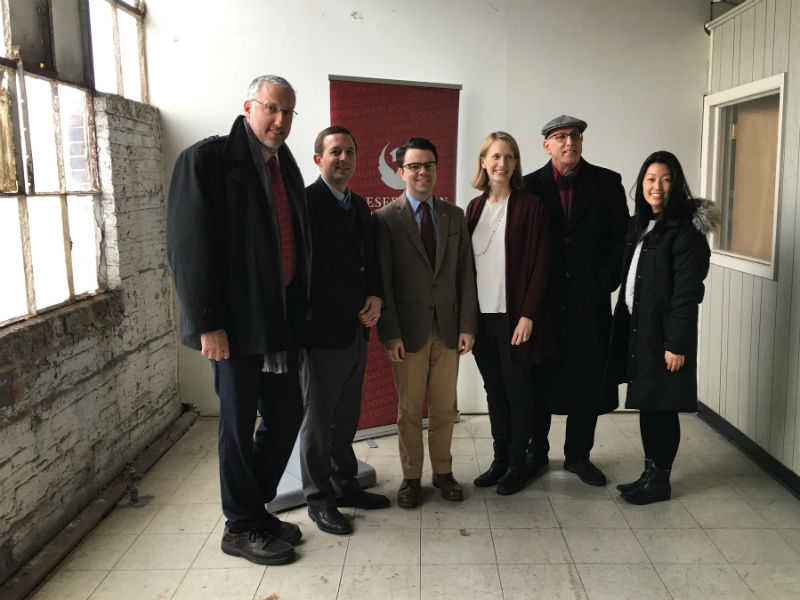On January 8, 2018, Senator Bill Ferguson of Baltimore City’s District 46 announced two new pieces of legislation that, if passed, will strengthen this key revitalization and community development tool.
Senator Bill Ferguson made this announcement at an event organized by Preservation Maryland at the historic I.C. Isaacs & Co. building in Baltimore’s Highlandtown neighborhood — a recent recipient of state Historic Tax Credits. Senator Ferguson was joined at the press conference by Delegate Brooke Lierman, a long-time supporter of historic preservation, Jay Steinmetz, CEO of Barcording, Inc. a local Baltimore technology company who will be moving their headquarters to the Isaacs & Co. building; developer Mark Shapiro of Shapiro Company, and architect Sharon An from the Urban Design Group.
New Pro-Preservation Legislation
INCREASING HISTORIC TAX CREDIT INVESTMENT
State historic tax credits work for Maryland. In fact, the Maryland historic tax credit has a well demonstrated 8:1 return on investment. When buildings are rehabilitated, they pay more in local taxes which support better schools, roads, and healthcare without the need for more state dollars. Additionally, Maryland’s commercial historic tax credit has been shown to create about 73 jobs per $1M in credits.
Unfortunately, as of FY18, Maryland state government has invested only $9M in the entire state Historic Tax Credit program for the entire state, while neighboring Virginia invests nearly $100M annually.
Announced at the press conference, one of the pieces of legislation that Senator Ferguson will look to pass would address this funding famine by requiring the Governor to appropriate at least $15M annually in the Heritage Structure Rehabilitation Tax Credit — a modest $6M increase over the current funding levels.
Of the historic tax credit, Senator Ferguson said, “These are no brainer policies. They create jobs. They restore neighborhoods. They build community.”
CREATING AFFORDABLE HOUSING
Preservation Maryland recognizes that Maryland needs more affordable housing and that many of the state’s community redevelopment programs can work more efficiently to address this challenge. The recent overhaul of the federal tax code has increased the cost of completing rehabilitation projects due to slower vesting of the federal Historic Tax Credit. Maryland’s state historic tax credit program can help to offset this damaging impact on community redevelopment.
In response to statewide needs, Senator Ferguson will introduce legislation to increase the state Historic Tax Credit from 20% to 25% for projects that result in affordable housing. This will incentivize the use of historic structures to meet the Maryland’s need for 119,000 new affordable housing units just to meet existing needs. The legislation will also streamline the existing program by allowing for the simple transfer of credits to entities outside of development partnerships which will help alleviate some of the cost of completing projects.

